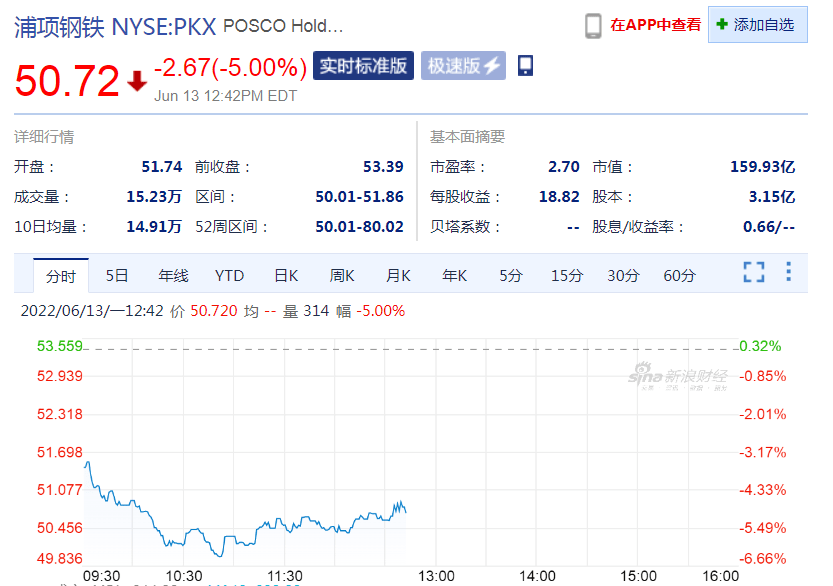The strike by South Korean truckers that began at midnight on Monday, June 6, local time, has continued and intensified. An earlier Wall Street News article said that most of the 25,000 members of the South Korean labor union and a large number of non-unionized truck drivers have joined South Korea’s exports of everything from steel and plastics to consumer goods could slow if the strike continues for weeks.
On Monday, June 13, South Korea’s largest steelmaker Posco said it had suspended production of some products as a strike by South Korean truckers exacerbated disruptions to global supply chains. Affected by the news, shares of Posco Holdings fell as much as 5% in early trading on Monday.
POSCO said its wire rod output will be cut by about 7,500 a day as it suspends production at four wire rod plants and two cold-rolling mills from 7 a.m. Monday as the truckers’ strike exhausted its warehouse space. ton, the daily output of cold-rolled steel will be reduced by 4,500 tons. Posco said:
While the company is working to minimize the impact of the strike, depending on the size and duration of the strike, it may be necessary to further reduce production. Currently we are accumulating products in the parking lot and on the road in the factory.
Likewise, Total Energies, one of the world‘s six largest petrochemical companies, warned on Monday that if the strikes continued, they would likely have to at least partially suspend output at some plants.
Steel, cement and petrochemical companies have been among the hardest hit so far. According to data from Yonhap News Agency, South Korea’s cement shipments have dropped to about 10% of the usual level; the Korea Petrochemical Industry Association, which represents 32 petrochemical companies, pointed out that due to the strike, the average daily factory deliveries of member companies have plummeted by 90%.
South Korea’s industrial sectors, including autos, steel, petrochemicals and cement, faced cumulative losses of about 1.6 trillion won ($1.24 billion) as of Sunday due to the ongoing strike by truckers, the Ministry of Industry said on Monday.
It’s not just South Korea. The strike may affect related industrial chains in Asia. According to Parsley Ong, head of Asian energy and chemicals research at JPMorgan Chase & Co., this situation is worrying because South Korea is the exporter of the chemical paraxylene. Major country and one of the biggest sellers of PVC to Asian factories.
The truckers’ strike adds to the challenges chemical producers already face from high feedstock costs and slowing demand.
About 20 million tonnes/year of ethylene capacity across Asia has been operating at a reduced rate due to the global economic slowdown, according to estimates by JPMorgan.
The Ministry of Land and Resources of South Korea said that 12 ports in South Korea are currently operating normally. If the strike continues for a long time, it is expected that the national logistics will be paralyzed. It is reported that the Ministry of Land and Resources of South Korea has taken emergency transportation measures, and has invested more than 100 military container vehicles in major logistics locations such as Busan Port and Incheon Port.
The strike came as truck drivers protested against rising fuel prices, and the drivers demanded that the South Korean government expand the safe truck fare system and ensure basic wages. South Korean President Yoon Seok-wyeh has called for action on inflation and a strike by truckers after he said any wrongdoing would be dealt with in accordance with legal principles.Return to Sohu, see more
Editor:
Disclaimer: The opinions of this article only represent the author himself, Sohu is an information publishing platform, and Sohu only provides information storage space services.
